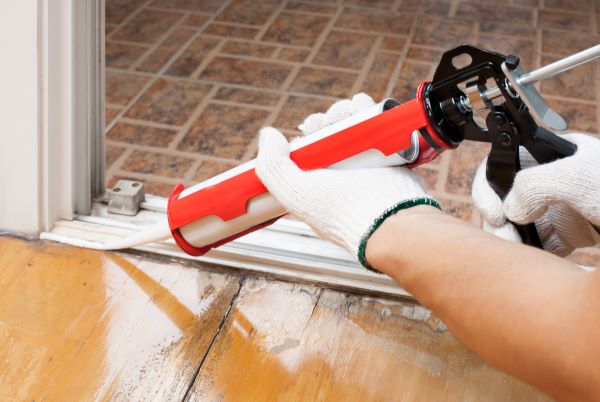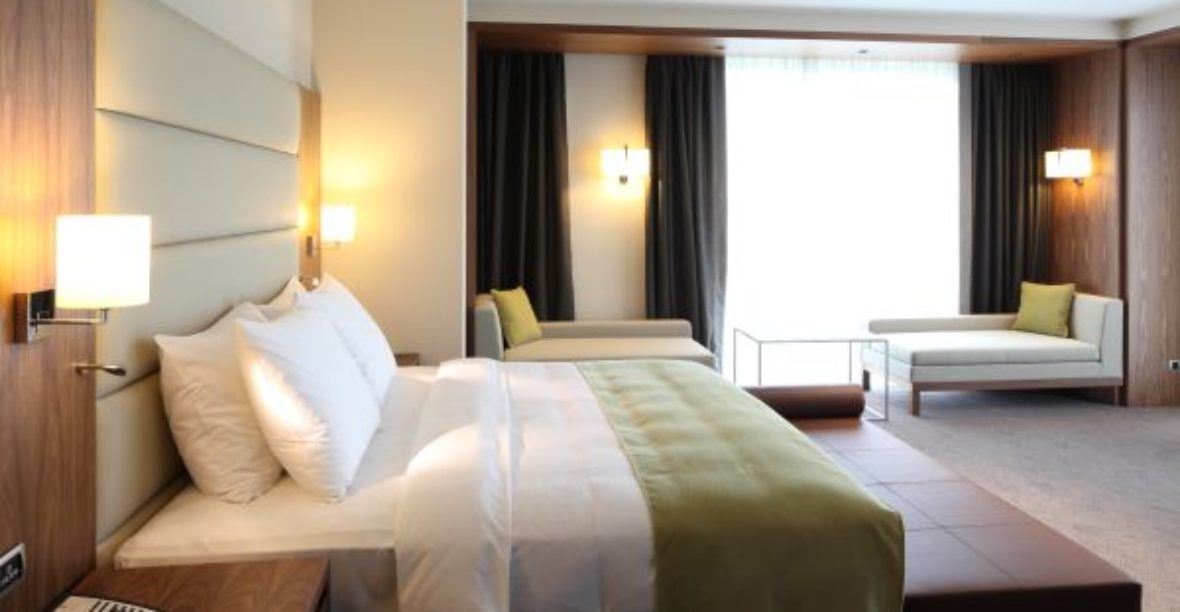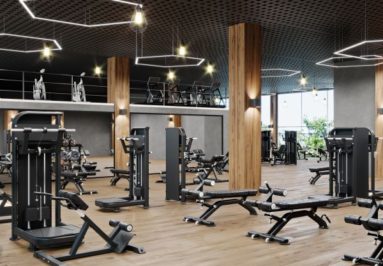In order to run a successful hotel business, there are certain measures that you should consider taking to improve the experience for guests as well as ones that encourage them to return. Whether guests are staying at a hotel for vacation, a business trip, or a family reunion, there is no doubt that each guest expects good rest and comfort. Guests may value customer service, cleanliness, and safety, but even more so, they appreciate having a space where they can sleep peacefully.
If you want to provide your guests with the best experience, it is important to consider soundproofing your hotel rooms. There is no guarantee that any kind of noise will be completely kept out of these rooms even with soundproofing methods, but it will make a huge difference. If your hotel is located near an airport or a busy street, it’s important to do everything you can to bring those noises to a minimum. This article will take you through steps to take for soundproofing a hotel room.
Steps to Soundproofing a Hotel Room
Several buildings, such as apartments and hotels, require a certain STC rating to operate properly for business. A Sound Transmission Classification (STC) Rating is a unit of measurement that determines how well a building is able to cover sound. The International Building Code requires most hotels to have an STC Rating between 50 and 55. This form of measurement can help hotel owners determine what soundproofing methods will work the best in hotel rooms.
See Similar: Target STCs
Place Acoustic Panels on Walls to Absorb Traveling Noises
Walls are one of the most common sources where noise can easily travel through. This can be quite difficult to manage in hotels due to the close proximity of the rooms. Though, there are methods you can take to absorb noises that may travel through walls. Acoustic panels are a solution for sound absorption, reverberation, and improve speech intelligibility. These can be easily mounted on walls and are an aesthetic soundproofing method. Many guests often think that these panels are used for decoration or as a way to make a hotel room look more lively. These panels range in thickness as well, so that you can decide which size is best fit for soundproofing a hotel room.
Install a Door Sweep or Acoustical Caulk to Prevent Noise Leaks
Noise can leak through any small cracks or corners near doors, windows, and walls. There are several options to consider for preventing noise leaks in a hotel room. One option, often more affordable than the other, would be acoustical caulk. This works as a sealant to prevent sound leaks and is easy to use. Although this option may not be the most effective, it still makes a difference for those on a budget. Another option would be to install a door sweep, which is placed at the bottom of a door to eliminate noise levels. It is a heavy duty product that works efficiently to prevent noise leaks.

Place Soundproof Curtains on Doors and Windows to Block Noise
Soundproof curtains are one of the best investments you can make for hotel rooms. As we know, noise can easily travel through doors and windows. Soundproof curtains are placed over any given surface and work to absorb sounds that travel through. Better yet, you can purchase the AcousticCurtain that operates as both a soundproof and light-blocking method. You can also purchase a product like the AcoustiDoor, which is a retractable, dense soundproofing curtain that can be placed over the door in a hotel room. Both products work extremely well and make notable differences when used in hotel rooms.
Install Carpeting to Absorb Noise and Prevent Echo
If your hotel rooms have tile or wood flooring, this makes it extremely easy for noise levels to increase as well as echo. Although these flooring options may look aesthetic and appealing, they can actually cause a lot of disruptions for your guests. It makes it easy for loud dialogue and other noises to bounce off the floors. Installing carpeting within a hotel room will operate as a beneficial soundproofing method, working as a great step to take towards sound absorption. If you are looking for a simpler option, rugs can also be used as a way to absorb noise. This will allow your guests to reside, relax, and rest in a peaceful environment.
How to Soundproof a Hotel Room – Conclusion
The steps in this guide will help you effectively soundproof a hotel room, furthermore creating a better experience for your guests. Not every soundproofing method needs to be expensive or difficult to manage. Soundproofing a hotel room is one of the best decisions you can make to ensure that your guests will have an amazing experience with desire to return. Let’s review the several steps you can take to soundproof a hotel room:
- Place Acoustic Panels on Walls to Absorb Traveling Noises
- Install a Door Sweep or Acoustical Caulk to Prevent Noise Leaks
- Place Soundproof Curtains on Doors and Windows to Block Noise
- Install Carpeting to Absorb Noise and Prevent Echo





